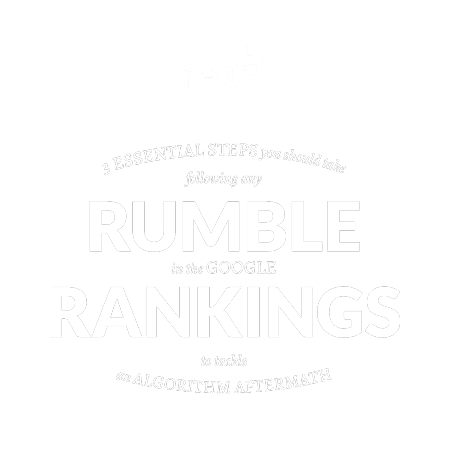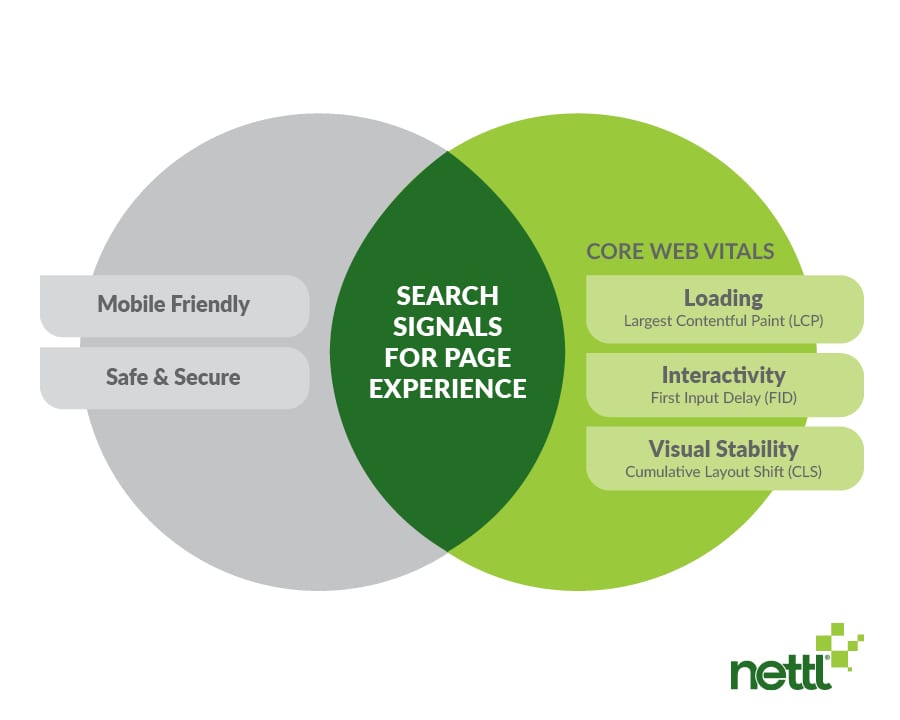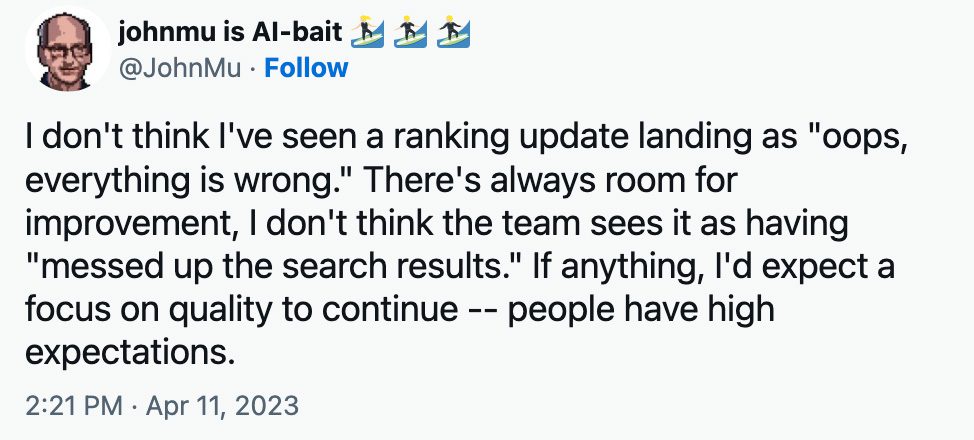Rumble in the Rankings
approx 7 minute read
Google Algorithm Updates
Did you hear that?
Sounded like a rumble in the rankings.
That could be because Google recently announced a major update, or rather a series of updates, to their broad core algorithm.
What’s a core algorithm?
It’s the most fundamental part of a magic formula.
A series of complex calculations that decide where your website appears, if at all, in Google’s search results.
Is it a big deal?
Well, maybe. Probably.
You see, Google makes changes all the time (in one year as many as 9 per day on average) and they don’t usually say anything.
When they do make a core update, there’s a big announcement. Followed by much commotion and hoo-hah in the Search Engine Marketing circles.
It’s a sure sign the changes are big ones and potentially rather disruptive.
Good or bad? Hard to tell. Maybe indifferent.
Oh really? So why should I care?
Because it could lead to a big drop in your website traffic.
Simply falling just one place in the search rankings could mean losing 13% of your visitors.
Cascade out of the top 3 and lose around 60% of the clicks.
Tumble to the bottom of page 1 and see your organic traffic virtually disappear.
It doesn’t have to be all doom and gloom of course…
Search Engine Optimization is a zero-sum game
SEO is a zero-sum game.
What’s bad news for one website could be good for another.
You might benefit from climbing a spot or two. A page or two.
Break into the top 3 places and it could be a game changer for your business.
If your motives are in-line with Google’s view of the web-wide-world then by jingo, thou shalt be rewarded.
For example:
If, prior to Google’s mobilegeddon update, your site was mobile’s bff.
Then arise, Lord Liquid Layout.
Prior to Google’s Panda update, you might have invested time creating thorough, unique, compelling content.
Arise, King of Content.
Perhaps if you had your SSL in place before Google’s update to flag non https sites as ’not secure’ then arise, Sir Site Security III.
OK, the last one was not a core update, but you get the message.
It’s about being prepared. And then subsequently rewarded.
What should I do to prepare?
The best way to get ready for a core update is to worry less about what Google are doing.
And more about what you are doing.
Be less concerned about trying to guess how Google will interpret signals.
And focus more on how to add value to your visitors.
Do you know why?
Some things never change
Because, like the cast of Disney’s Frozen once sung, some things never change.
Whatever the update, one fact remains consistent.
The job of the search engine is to always recommend the best sites for the user’s query.
So your mission (if you choose to accept it) is to:
- Make sure your site provides the best information or solutions for that query.
- Make it easy for Google to recognize this.
How do I do that?
How does a Formula One racing team win a championship?
They have the fastest car? One of the best drivers? Possibly. Often both.
But the fact is, thousands of successful factors must combine to make this happen.
Sure, just like the driver or engine power, some aspects more important than others.
But it’s about optimizing everything for peak performance.
What should I do to monitor whether my site has been impacted?
1. Check-in with Google.
Put a little time aside to explore Google Analytics and Search Console.
You’ll be able to take a look at the data.
- How many website visitors?
- Where did they come from?
- What device are they using?
- What search terms brought them here?
- Where’d they go?
2. Use other keyword tracking tools
Specialized tracking tools can monitor performance across a wide range of criteria.
Such as device, location different search engines and even analyzing different user intent.
They will notify you when your rankings change.
And you can have them monitor your competition too.
See how they are performing for the same keywords and key phrases.
If someone has gotten the jump on you following a recent update, it might be worth a deeper dive to investigate why.
There are plenty of other free (and freemium) SERP tracking tools available.
To name just a few.
3. Just keep swimming
Ignore the fact that two Disney references in one post is way too much and understand that search-engine-land is a volatile place.
Your website ranking can go up as well as down.
Think of the search landscape as fluid. Forever in motion.
It’s important to work consistently to improve your offering.
Google once likened core updates to a list of top movies.
One way to think of how a core update operates is to imagine you made a list of the top 100 movies in 2013. Several years later in 2023, you refresh the list. It’s going to naturally change. Some new and wonderful movies that never existed before will now be candidates for inclusion. You might also reassess some films and realize they deserved a higher place on the list than they had before.
So what they’re saying is, your website doesn’t need to change for your ranking to change.
Other sites might come up and knock you off your perch.
Or, your offering might be interpreted as offering more value.
But unlike a classic 80s movie like Lost Boys, which should get more credit now than it did…
A website that hasn’t changed in a year is less likely to receive accolades.
In fact, that’s only really likely to happen if you improve it.
Work on it. Keep working on it.
Keep swimming and you may reach the surface.
Stop swimming and your site will slowly sink.
You see, SEO is a little like going to the gym.
Go consistently, work hard. You’ll see results.
Stop going. What happens?
Well, you may need to loosen that belt again.
What was the last update about?
Usually a combination of factors that prove, in one way or another:
- How authentic and relevant is the content on the page?
- How much does Google trust the website to provide this information?
- What is the user experience like when consuming this information?
The March 2024 Core update mostly dealt with websites Google deems to be spammy. Unhelpful, unoriginal, disingenuous content.
You can check our full take on the latest Google update here.
Plus, we’ve already seen Google’s Core Web Vitals play a strong part…
And any new signals complement factors already in play regarding page experience.
Things like mobile compatibility and site security for instance.
There are rumblings from the seo community about this update tackling spam or ai content.
Or perhaps doubling down on the E.A.T (Often now E.E.A.T):
- Experience
- Expertise
- Authority
- Trust
Semantics
We’ve also observed results from a focus on semantic search. Semantic search isn’t just about similar words for the same things. But rather it’s about a big focus on understanding what people really mean when they search. What are they looking to do, exactly? What is the Search Intent?
Still about Quality
The latest update has been a bit, let’s say, volatile. This has prompted a few people to ask if Google felt they had got this one wrong. When Google’s John Mueller was asked about it, he said “I’d expect a focus on quality to continue”. A little vague, but there you have it. Focus on providing quality content for your audience.
It’s not all about them
You matter, too. You know that, right?
In addition to Google rewriting its magic formula, your business evolves.
Markets move, customers change, competitors adapt.
SEO is an ongoing activity that improves user experience, relevance, and authority amidst all these changes.
So sometimes a pause, review, and reboot are helpful.
To help align your SEO strategy and content with your business today (and tomorrow).
Not sure where to start?
We make that easy. Here. Get a free site audit.
We’ll be in touch to explain what options you have.
No hard sell. Just a few insights and ideas that might just make the difference.








